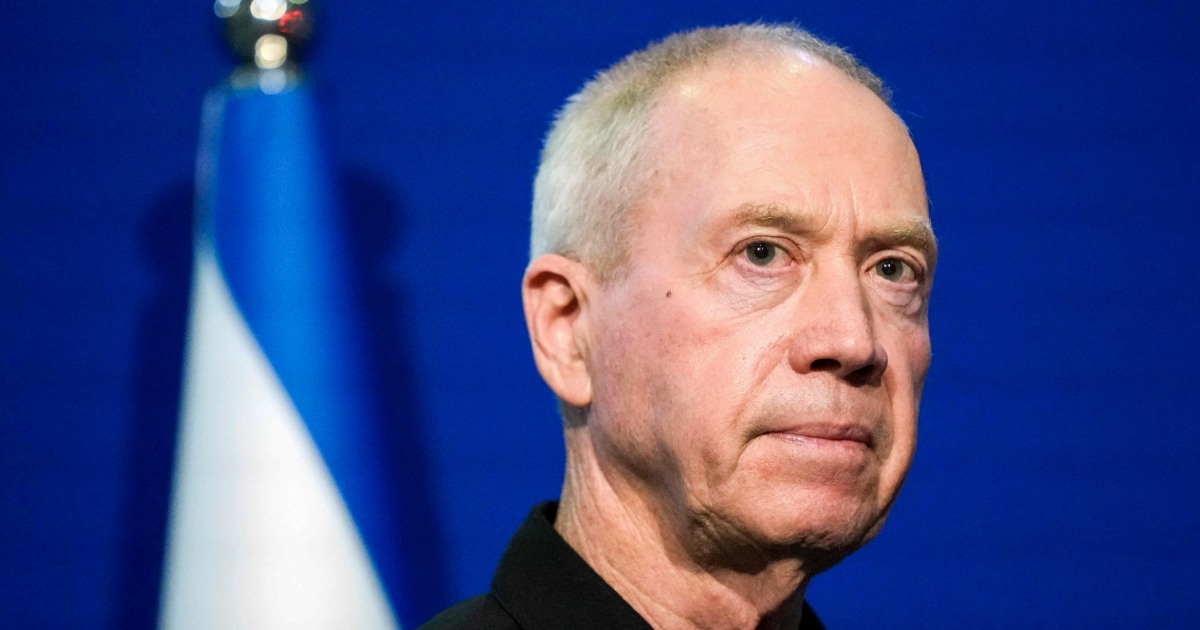Israeli Prime Minister Benjamin Netanyahu on Tuesday fired his defense minister, Yoav Gallant, a long rumored move that was announced on Election Day in the United States. Netanyahu and Gallant had repeatedly clashed over the conduct of the war in Gaza and Lebanon.
Gallant will be replaced by Foreign Minister Israel Katz, Netanyahu said in a statement. Gideon Saar, a former Netanyahu opponent, will become foreign minister and cement support for the fragile ruling coalition keeping the embattled Israeli leader in power.
“In the midst of a war, more than ever, full trust is required between the prime minister and the minister of defense,” Netanyahu said. “Unfortunately, although in the first months of the campaign there was very fruitful work, during the last months this trust cracked between me and the minister of defense.”
Netanyahu added that there were significant “gaps” between what the Cabinet had decided and what he termed “the campaign.”
He added that most members of the government and the Cabinet shared a “crisis of trust” with Gallant.
Gallant, in response Tuesday, said, “The security of the State of Israel always was, and will always remain my life’s mission.”

Signs of strains in the Gallant-Netanyahu relationship appeared over the last months. Gallant was scheduled to meet with his U.S. counterpart, Secretary of Defense Lloyd Austin, in Washington in early October — a trip Gallant initiated — but it was postponed at Netanyahu’s request.
Gallant, who has spent decades in the military, has been critical of Netanyahu’s approach to the conflicts with Hamas and Hezbollah.
His firing drew immediate criticism from opposition leader Benny Gantz, who said it was “politics at the expense of national security.”
The Hostages and Missing Families Forum, in a statement, expressed its “deep concern” about the decision and about how it would affect “the fate of 101 hostages held by Hamas terrorists in Gaza for nearly 400 days.”
Netanyahu’s decision was welcomed by his ultranationalist National Security Minister Itamar Ben-Gvir, who congratulated the prime minister on the move.
“With Gallant … it is not possible to achieve absolute victory,” Ben-Gvir wrote in a post on X.
In a nationally televised statement in May, Gallant challenged Netanyahu over his refusal to discuss a cease-fire and hostage deal. He said that would force Israel to have to rule over the Palestinian enclave again.
“We must make tough decisions for the future of our country, favoring national priorities above all other possible considerations, even with the possibility of personal or political costs,” Gallant said over the summer.
In the days after the Hamas-led Oct. 7, 2023, terror attacks, which Israeli officials say killed more than 1,200 people, Gallant announced a “complete siege” of Gaza.
“No electricity, no food, no water, no gas — it’s all closed,” Gallant said at the time, adding that his military was fighting against “human animals” in Gaza, where local officials say more than 43,000 people have been killed.
Netanyahu fired Gallant in March 2023, after he publicly disagreed with the government and pushed to stop a controversial plan to overhaul the judicial system. The move prompted mass protests and led Netanyahu to reverse the decision.










